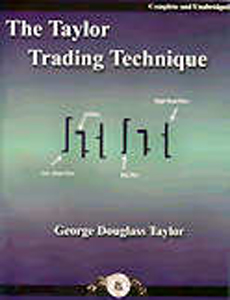Greeks
Further Reading
Various factors that influence option price are termed as “Greeks”. The Greeks helps a trader to understand how much an option is exposed to implied volatility, time-value decay and changes in the underlying price of the asset, usually stocks, shares and other market listed securities. Investors can estimate the level of risk in trading options by using these risk measures. There are mainly four types of Greeks that are usually used to measure risk:
- Delta
- Vega
- Theta
- Gamma
Delta
Delta is one of the most commonly used Greeks that calculate the change in the theoretical value of an option against the change in value of the underlying stock. If the Delta is positive, then it means the option position will gain value when the price of the stock moves up while on the other hand value of the option will go down if the stock price drops. Negative Delta is rather adversely related with the stock price. According to this, the option position will rise (theoretically) when the stock price falls and vice versa.
Gamma
The Greek sign Gamma estimates the change in Delta of an option against the $1 price movement of the stock. Gamma helps an investor to understand whether the Delta is stable or not. If the Gamma is big, then it means even a minor change in the stock price may lead towards a dramatic change in Delta. Both long calls and long puts will always have positive Gamma while on the other hand short calls and short puts usually come up with negative Gamma.
Theta
Time decay or Theta is an estimation of how much value of an option (theoretically) changes when a day passes and the price of the stock and volatility remains unchanged. In other words, Theta estimates how fast an option will lose its value as it approaches towards expiration. Theta allows a trader to estimate the change in the extrinsic value of an option by the always-constant passage of time. It is important to keep in mind that theta for a call and put at the same strike price and expiration month are different. Long calls as well as long puts always come with negative Theta while on the other hand short calls and short puts always have positive Theta.
Vega
Vega is the only Greek in the group that is not represented through an original Greek letter. Vega estimates that changes in the theatrical value of an option against 1% change in volatility. Long calls along with log puts always come with positive Vega and short calls as well as short puts always have negative Vega.
Glossary List- How to Trade Forex and Gold Options
- How to Trade the Gold Price and Profit!
- Forex Trading the EUR/USD Pair € EURO and $ US Dollar
- How to Trade Stock Market Indices S&P500
- How to Trade Crude Oil
- Forex Trading Psychology
- What Are Broker Recommendations?
- Free Tickets to Trading & Investing Seminar & Expo ($18) Brisbane 2013
- Stock Calc App
- All About Warrants
- Introduction to Exchange Traded Funds
- Introduction to Exchange Traded Funds: Features
- Introduction to Exchange Traded Funds: Domestic ETFs
- Introduction to Exchange Traded Funds: International ETFs
- Exchange Traded Commodities
- Australian Stock Scan
- Australian Online Share Trading
- List of Trading Books
- Interesting Thoughts about the Australian Dollar
- What's the Meaning of Hawkish?
- Do You Know How To Use the P/E Ratio
- Trading, Religion and Politics - Do They Have Anything in Common?
- Shares that are Volatile that Double and Half in the Short Term
- Telstra (TLS) T3
- Margin Call by E-mail
- The Cost of Holding a Position
- Lack of Disclosure: Compensation from ASX Listed Company
- Unrealistic Returns and Benchmarks
- CMC Markets Down
- Quality versus Quantity Forex Trading
- Woolworths 1H Sales $30.7bn up 3.2%
Date added 31-01-2013 - ASIC Fines CommBank's CommSec
Date added 25-09-2012 - Industry Super Network Calls to Ban High Frequency Trading (HFT)
Date added 22-09-2012 - NAB Launches Online Share Trading Platform
Date added 19-09-2012 - Reserve Bank of Australia Says 23 Countries Holding AUD
Date added 18-09-2012 - Australia Post Digital Mailbox
Date added 10-09-2012 - Winners and Losers of Trading for Week 2
Date added 16-01-2012 - 2012's First Week of the Best and Worst Traded Stocks
Date added 09-01-2012 - 2011's Last Best and Worst Traded Stocks
Date added 05-01-2012 - Best and Worst Pre-Christmas Traded Stocks
Date added 30-12-2011 - Trading Winners and Losers for Dec. 12-16
Date added 19-12-2011 - Best and Worst Traded Stocks for Dec. 5-9
Date added 13-12-2011 - Top 3 Best and Worst Traded Stocks
Date added 05-12-2011 - ASX Glitch Trading Halt
Date added 27-10-2011 - Worst Trade Stocks (and the Best)
Date added 06-08-2011
Top 150 Public Companies Listed on the Australian Stockmarket as at 29/05/2009
- BHP Billiton
- Westpac Banking Corporation (WBC)
- Commonwealth Bank of Australia (CBA)
- National Australia Bank (NAB)
- Telstra (TLS)
- ANZ
- News Corporation (NWS)
- Woolworths Limited(WOW)
- Woodside Petroleum Limited (WPL)
- Rio Tinto
- Westfield Group (WDC)
- Westfarmers Limited (WES)
- QBE Insurance
- CSL
- Newcrest Mining Limited (NCM)
- Origin Energy Limited (ORG)
- Santos Limited (STO)
- AMP Limited (AMP)
- Macquarie Group (MQG)
- Foster’s Group Limited (FGL)




